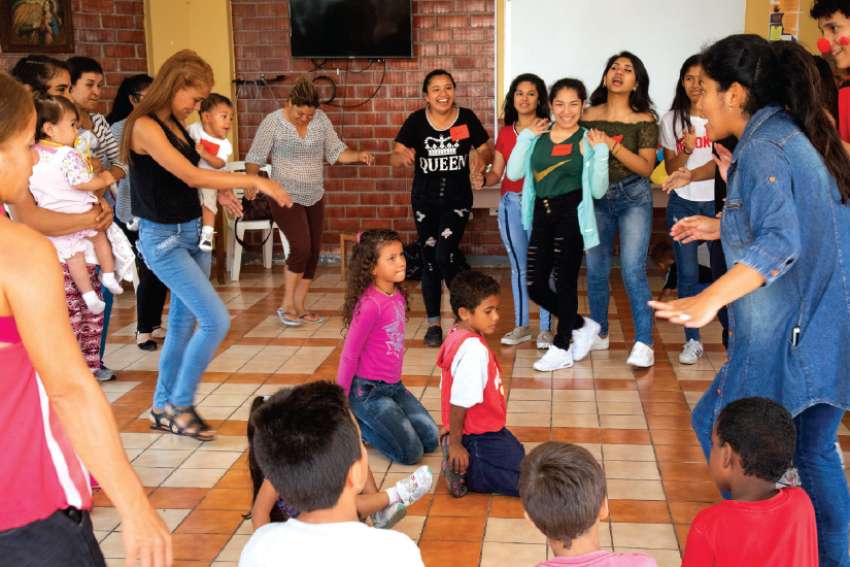For Pena, this year’s celebrations were different. She is in Peru, looking for work far from her family. And instead of spending Christmas at home, she is staying at the Scalabrini welcome centre, a home run by the Scalabrinians to help respond to the wave of Venezuelans arriving in Peru.
The shelter opened its doors Aug. 6 and has room for 80 people, who can stay for up to seven days. People in particularly vulnerable situations may stay longer. Most of its residents are Venezuelans.
With more than half a million Venezuelan migrants and refugees, Peru is the second-largest host country after Colombia.
“Before, in Venezuela, I didn’t live in poverty and didn’t have big needs. I could go out and enjoy myself. I lived a normal middle-class life,” said Pena.
Three years ago, in her job as a nurse at a private psychiatric hospital, Pena started witnessing the shortage of medicines. The situation continued to worsen until last April, when the hospital closed. Without a job, and with her savings quickly dwindling, she decided to migrate.
After a month-long journey, mostly on foot, Pena made it to Peru in late November. Along the way she slept on the street, suffered dehydration, and her feet developed blisters several times. “Those first days were difficult. I couldn’t sleep at night because I felt disoriented,” Pena said.
“We leave our country with an idea, with expectations. But when we arrive the reality is very different,” said Jose Pineda, the shelter’s social worker, who is also from Venezuela. “The home is prepared for this. We want to let (the migrants) know that there is a helping hand,” he said.
The Scalabrinian shelter is just one of the many projects connected to the Church to support migrants and refugees. Some of the other initiatives are the United for Hope shelter run by the Comboni Missionaries, a Salesian shelter for youth and a comprehensive project of assistance and protection provided by the Jesuits.


